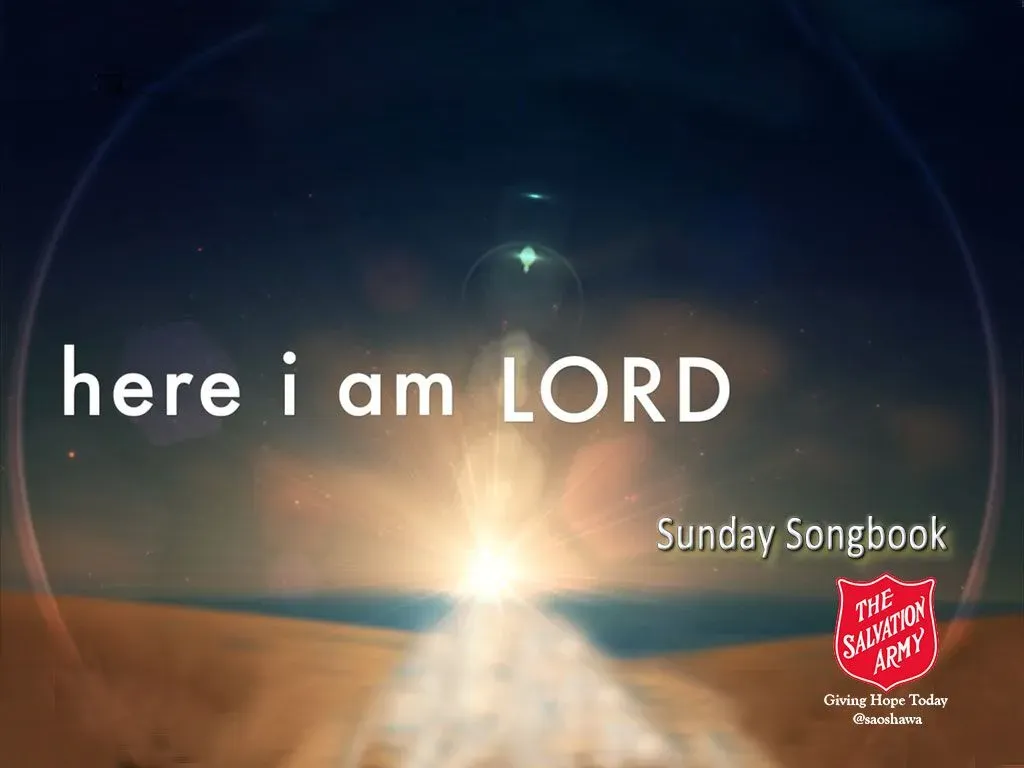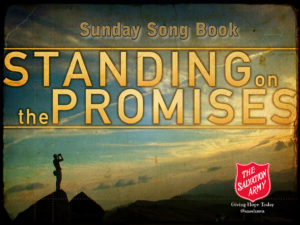I, the Lord of sea and sky,
I have heard My people cry.
All who dwell in dark and sin My hand will save.
I, who made the stars of night,
I will make their darkness bright.
Who will bear My light to them – whom shall I send?
Here I am, Lord. Is it I, Lord?
I have heard You calling in the night.
I will go, Lord, if You lead me;
I will hold Your people in my heart.
I, the Lord of snow and rain,
I have borne My people’s pain.
I have wept for love of them; they turn away.
I will break their hearts of stone,
Give them hearts for love alone.
I will speak My Word to them – whom shall I send?
I, the Lord of wind and flame,
I will tend the poor and lame.
I will set a feast for them; My hand will save.
Finest bread I will provide,
Till their hearts be satisfied.
I will give My life to them – whom shall I send?
How amazing that the “Lord of sea and sky… snow and rain… wind and flame” chooses to send us to meet the needs of other people! With the chorus based on the experience of young Samuel (I Samuel Ch. 3), or possibly the prophet Isaiah (Isaiah 6:8), we may ask ourselves the question of what God is calling each of us to do in our day. Note that the “finest bread” in verse 3 is to satisfy people’s hearts, but we may also consider the physical nutritional needs in our world that can be our responsibility.
How amazing that the “Lord of sea and sky… snow and rain… wind and flame” chooses to send us to meet the needs of other people! Share on X Daniel Schutte is the Composer-in-Residence at the University of San Francisco. He sings and plays piano as well as acoustical guitar. He holds two Master of Arts degrees – one in theology and one in liturgy. Schutte grew up in Wisconsin and graduated from Marquette University High School before becoming a member of the St. Louis Jesuits. His many compositions were written mainly for Catholic liturgical use, but some have become familiar now in Protestant worship settings also.
Daniel Schutte is the Composer-in-Residence at the University of San Francisco. He sings and plays piano as well as acoustical guitar. He holds two Master of Arts degrees – one in theology and one in liturgy. Schutte grew up in Wisconsin and graduated from Marquette University High School before becoming a member of the St. Louis Jesuits. His many compositions were written mainly for Catholic liturgical use, but some have become familiar now in Protestant worship settings also.
WORDS AND MUSIC: DANIEL SCHUTTE
S.A. SONG BOOK, 2015 EDITION, #1002
REFERENCE: WIKIPEDIA







